Coronavirus: Face mask test reveals how germs spread when talking to someone
As more Australians are being encouraged to cover their face to curb the spread of the coronavirus, resistance to the government recommendation persists.
From midnight on Wednesday, face masks will be mandatory for people living in metro Melbourne and Mitchell Shire, with those found breaking the rules to be fined $200.
Despite health experts insisting the benefits of wearing a face covering far outweigh the consequences, some people appear to remain sceptical.
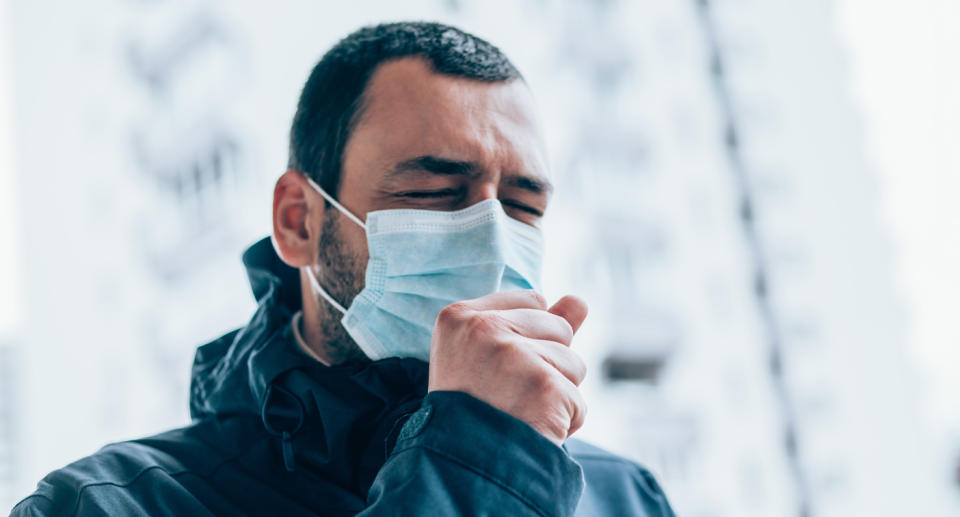
“There’s been a lot of commentary and a lot of people who don’t necessarily think that this virus is real, or think it’s [wearing face masks] somehow a fundamental attack on people’s human rights,” Victoria Premier Daniel Andrews told reporters Monday.
Hundreds warned to isolate over 'concerning' new coronavirus cluster
Victoria coronavirus outbreak grows with another big spike in cases
“I just remind every Victorian that nurses and doctors wear masks when they are treating you and I don't think it is too much to ask Victorians to wear a mask so they don't finish up in hospital or contribute to somebody else finishing up in hospital.
“The advice is, at this point in the pandemic, the circumstances we face, the reality we confront, masks across the board will make a difference and, therefore, if you're told something will make a difference, then you're obliged to do it.”
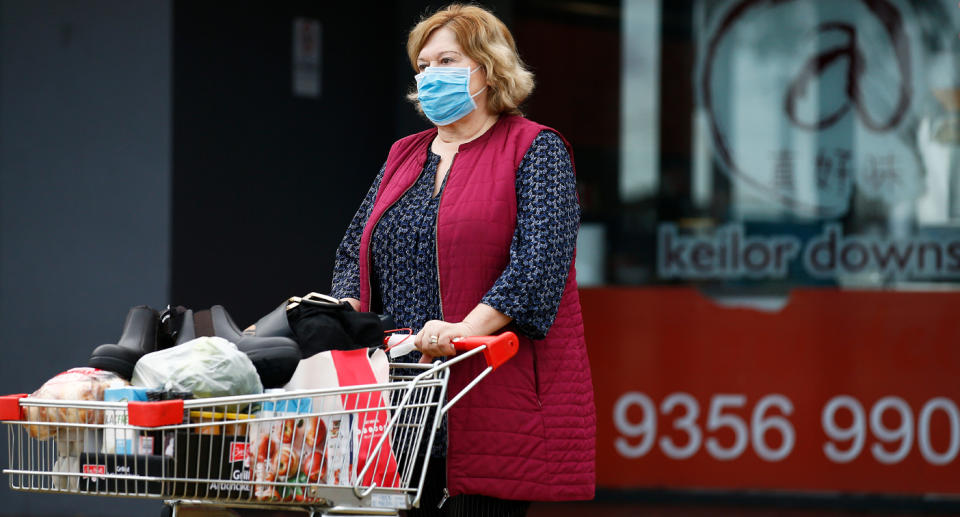
How face masks slow spread of bacteria
Confronting images have emerged illustrating how a mask can slow down the spread of germs from coughing, singing, talking and sneezing.
The photos were taken as part of research into how wearing a mask can protect people while in close proximity to to others and while maintaining social distancing.
The demonstration, carried out by the Microbiology Lab at Providence Sacred Heart Medical Center & Children's Hospital, revealed a stark difference in germs spread by a masked and non-masked participants.
The amount of bacteria that grew on a culture plate in 24 hours after it was coughed on twice varied hugely between the samples of a mask being worn, and one where no mask was worn.
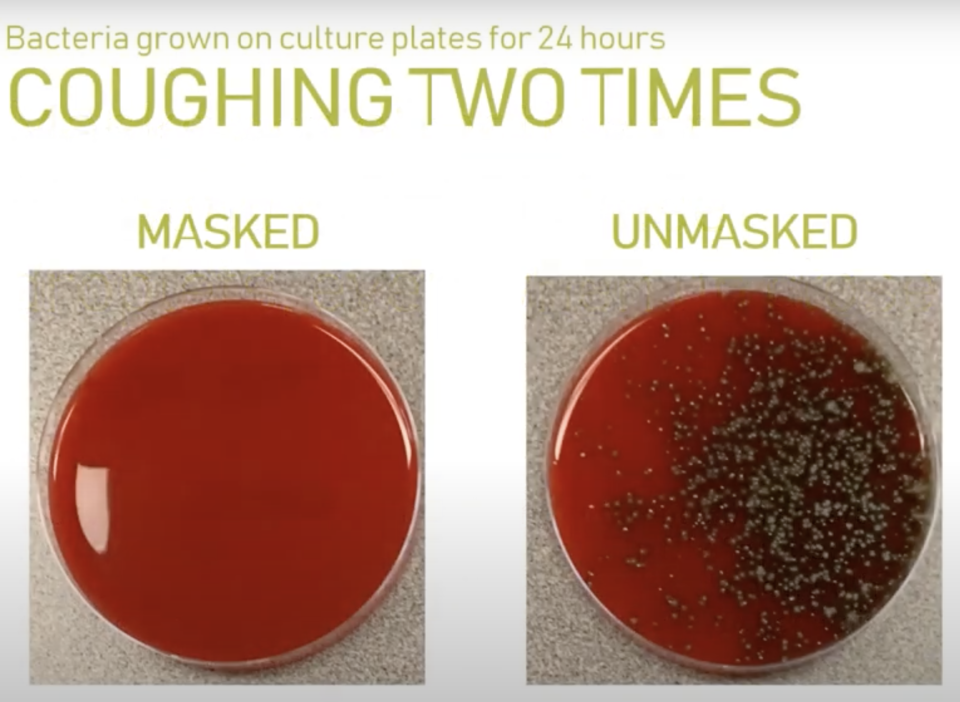
The plate coughed on by a masked participant didn’t show a single speck of visible bacteria, while the plate coughed on without a mask was covered in it.
A similar result was achieved when the participant talked for one minute, and although the plate affected by the masked talker did show some bacteria, it was minimal compared to the other plate.
The same thing was revealed in an example of the participant singing for one minute - the plate subjected to the unmasked singer had far more bacteria visible than the other after 24 hours.
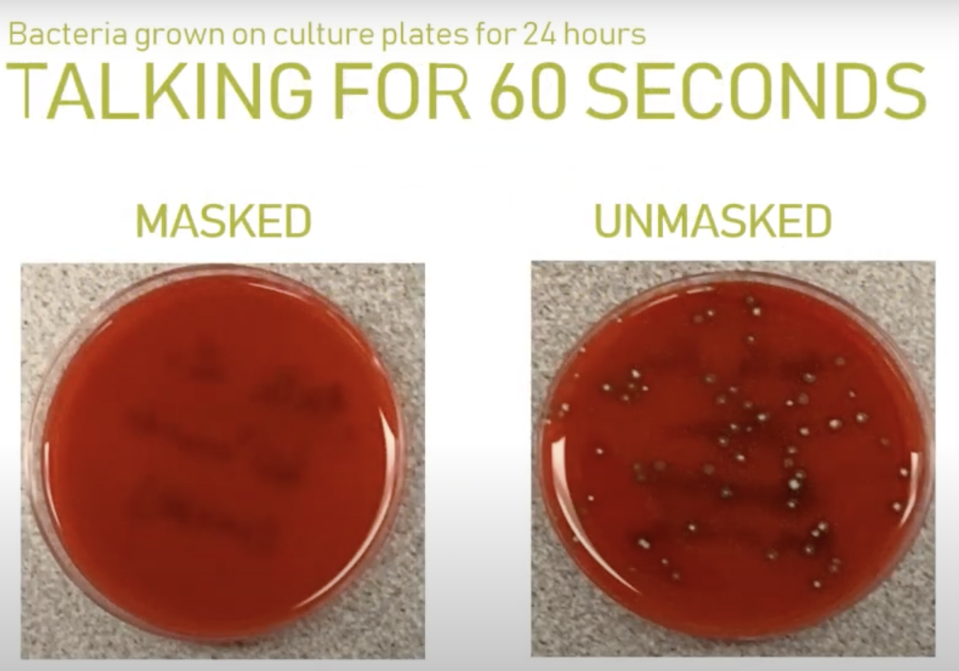
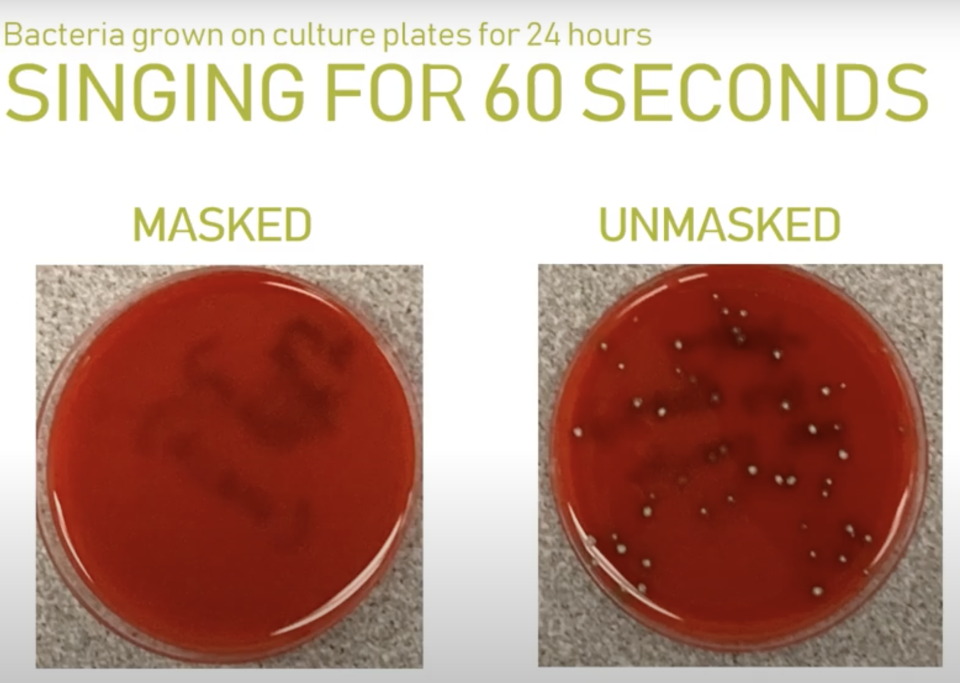
A huge spray of bacteria remained on the plate of an unmasked participant who sneezed on it, while the sneeze of a masked participant barely left a trace.
The study also evaluated how social distance impacts how much bacteria remained on the plate after a 24 hour period, with none to be seen on the plate kept at a 1.8 metre (six feet) distance from a masked participant.
A small speck was seen on the plate subject to the unmasked participant standing 1.8 metres away, while the unmasked participant standing 60cm away left a large volume of bacteria on the plate. The masked participant standing 60cm away left a few small specks.
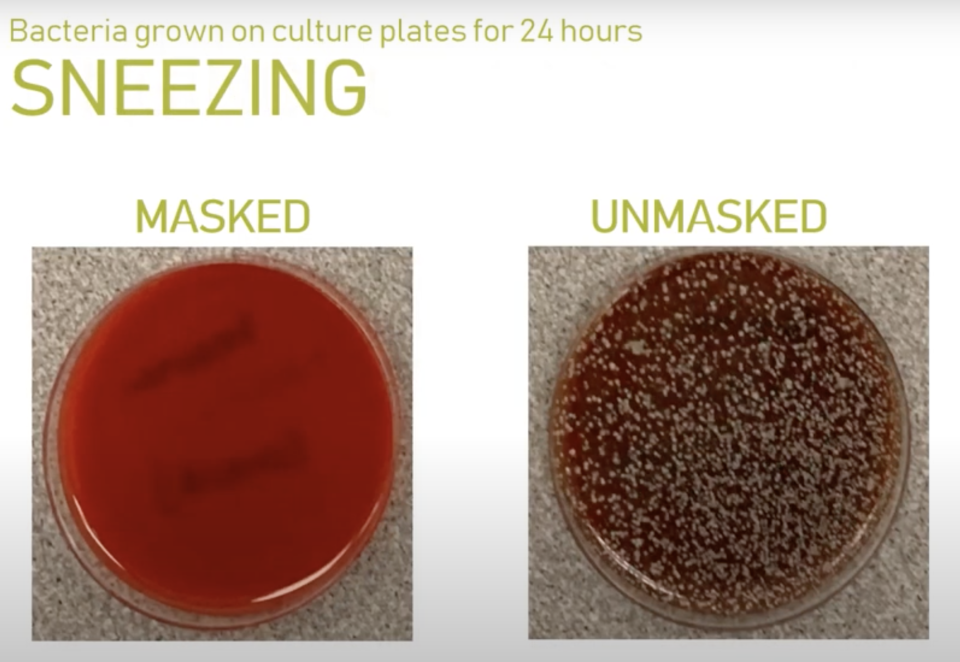
With Victoria’s growing focus on face coverings, questions have been raised over whether all Australians should be wearing them every time they step outside their house.
Face masks are just one element of the coronavirus pandemic that has left some wondering if they can trust the public health messaging, especially with the emergence of some bizarre conspiracy theories.
Do you have a story tip? Email: newsroomau@yahoonews.com.
You can also follow us on Facebook, Instagram and Twitter and download the Yahoo News app from the App Store or Google Play.




